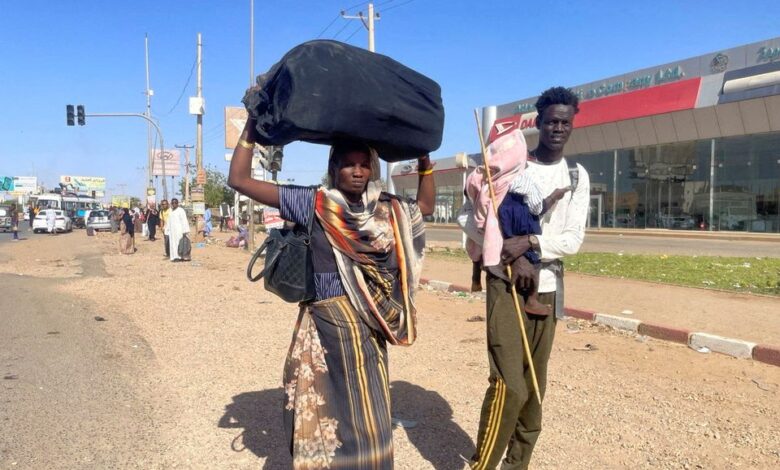In Sudan, Aid Workers Are Paying With Their Lives As War Rages
Since the war in Sudan started, reports show that up to 87 offices have been vandalised, 53 relief stores pillaged, and over 40,000 tons of WFP food assistance stolen. The World Health Organisation (WHO) says at least 11 health workers have also lost their lives, noting that about 30 more were injured.

Staff of international humanitarian organisations are at the receiving end of the ongoing war in Sudan. The raging feud between two Sudan’s warlords, Abdel Fattah al-Burhan and Mohamed Hamdan Dagalo, has claimed the lives of several aid workers, especially in Khartoum, the country’s capital.
Dr Khalid, a health manager at Save the Children, an international humanitarian organisation in Sudan’s North Darfur, is a living witness to the tragedy befalling aid workers in the war-torn country. His house was attacked during a recent clash between the Sudanese Armed Forces and the Rapid Support Forces.
Before the April 15 political crisis broke out, he said, the humanitarian situation had improved in North Darfur, a hard-to-reach area 1,071 kilometres from Khartoum. Now, the crisis is hitting the aid and humanitarian sector, leaving victims helpless.
In North Darfur, only one hospital serves a population of 2.8 million people, Dr Khalid said, revealing how assailants looted the maternity and pediatric hospitals and carted away ambulances and medical supplies. He said he had to move his family to Libya for safety after five of them were injured during the explosive attack on his house.
However, many other aid workers died amid the ravaging crises, despite the international humanitarian law protecting them in such war. Although the Sudanese Armed Forces and the Rapid Support Forces vowed to protect civilians during the war, aid workers were not spared from bloody attacks.
In the past four months, about 19 people providing aid in northeastern Africa have died while at work, Sudan’s Director for the World Food Programme (WFP) and the UN’s Acting Humanitarian Coordinator, Eddie Rowe, said.
The WFP said it had lost three aid workers: Osman Ali, Siddig Mohammed, and Yousif Elzain, in North Darfur since the war surfaced. “These dedicated humanitarian workers had been in a remote area delivering emergency cash assistance to some of Sudan’s most vulnerable people,” the WFP said in a statement.

Eighty-seven offices were vandalised, 53 relief stores were pillaged, and over 40,000 tons of WFP food assistance were stolen, according to the UN agency. At least 11 health workers died amid the Sudan war, said the World Health Organisation (WHO), noting that about 30 more were injured.
Save the Children has also been forced to shut down 57 of its nutrition facilities, denying at least 31,000 children medical attention, while 500 kids have died of malnutrition. More than two million children have been forced to leave their homes since the war began four months ago, with an average of 700 newly displaced every hour, according to the United Nations International Children’s Emergency Fund (UNICEF).
Meanwhile, the United Nations humanitarian chief, Martin Griffiths, said the Sudan war could lead to a “lost generation” of children. About two months ago, the country’s health minister, Haitham Ibrahim, said at least 3000 people were killed while thousands had been injured since the crisis began.
In South Kordofan, renewed clashes between the al-Hilu faction of the Sudan People’s Liberation Movement-North (SPLM-N) and the Sudan Armed Forces (SAF) have displaced at least 6,700 people.
Both warring parties targeted a helicopter belonging to the United Nations Interim Security Forces (UNISFA) in August. Also, Médecins Sans Frontières (MSF) staffers said they may have to withdraw their activities from the country after they were denied travel documents.
Support Our Journalism
There are millions of ordinary people affected by conflict in Africa whose stories are missing in the mainstream media. HumAngle is determined to tell those challenging and under-reported stories, hoping that the people impacted by these conflicts will find the safety and security they deserve.
To ensure that we continue to provide public service coverage, we have a small favour to ask you. We want you to be part of our journalistic endeavour by contributing a token to us.
Your donation will further promote a robust, free, and independent media.
Donate HereStay Closer To The Stories That Matter




